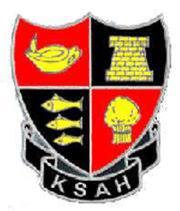
When a harmless joke by a group of Form Five boys in 1965 turned into a statewide scandal — and a lesson in courage, loyalty, and laughter.
by Dr Rahim Said (Alumnus Sultan Abdul Hamid College, Class of ’65)
In 1965, while most boys at Sultan Abdul Hamid College were sweating over their Cambridge exams, five restless classmates decided to honour a time-honoured college tradition — the year-end prank. What they didn’t expect was to turn a harmless school joke into a statewide scandal that became school legend.
It was the year when we were in Form Five — young, restless, and teetering between boyhood and manhood at the grand old SAHC in Alor Star.
The Cambridge School Certificate exams loomed ahead, and fatigue clung to us like chalk dust. Days blurred into nights of cramming algebra,
Shakespeare, and history dates no one would remember after December. Then one evening, a lower sixth boy slipped into our classroom with a mischievous grin.
“You’ve got to carry on the college tradition,” he whispered.
“What tradition?” we asked.
“The Fifth Form prank! Every year-end, before you leave, you’ve got to pull one off. It’s sacred.”
The spark was lit.
The suggested prank was simple enough: prepare a list of “students least likely to make it to Sixth Form” and paste it on the Headmaster’s notice board.
“Easy,” someone said.
But, of course, boys being boys, we decided to make it better.
That night, our little study group of five abandoned our textbooks for what we believed was a noble cause. Why stop at one school? Why not the whole state?
“Let’s make it a statewide announcement,” one of us declared. “If we’re going to prank, let’s do it properly!”
Ideas snowballed faster than we could laugh. One boy offered to carve a rubber stamp of the State Education Examiner’s seal. Another said he could “borrow” a letterhead from the Education Department. Someone else volunteered to type the letter on an old Olivetti typewriter for that authentic, bureaucratic look.
To top it off, our group’s only prefect — well connected and brave — promised to distribute the “official notice” to prefects of other schools. Perfect plan. Foolproof.
Until it wasn’t.
Our one mistake was trusting a prefect from the girls’ school in town. She received the “announcement” and, thinking it was real, pasted it on her Headmistress’s notice board for all to see.
By morning, Alor Star was buzzing. The so-called statewide Sixth Form list had gone viral — 1960s style — spreading from one school to another.
And then came the storm.
Our newly appointed Headmaster, a stern man with no time for teenage humour, summoned us to his office. He was furious.
“I want them expelled!” he roared.
The Senior Assistant, a kindly old boy himself, intervened.
“Sir,” he said softly, “what if they do well in the exams and enter Sixth Form next year? Wouldn’t it reflect worse on the College to have expelled its brightest?”
That bit of wisdom saved us. Barely.
Our prefect friend, however, took the full punishment. Eight strokes of the rotan for refusing to name us. His wallet, tucked in his back pocket, absorbed most of the blows, though his pride took the deeper cut.
.He handed in his tie and badge, and quietly returned to class. The rest of us said nothing, pretending to study while the entire school hummed with speculation. We thought that was the end of it.
It wasn’t.
A week later, vengeance arrived in the dead of night. No one ever admitted to it, but the next morning, the school walls were decorated with graffiti in bold red letters:
“Come one, come all — see HM’s balls hanging on the wall!”
Notice boards were torn down. The school was in chaos. The Headmaster was livid but powerless — the culprits were never found.
Within a month, he was transferred out. The Senior Assistant became acting head and reinstated the prefect. Order — and laughter — returned to the College.
We still talk about it whenever old boys meet. Someone will say, “Remember the great prank of ’65?” and laughter follows like an echo from another lifetime.
Looking back, we realise it wasn’t just about mischief. It was about spirit — the kind that made Sultan Abdul Hamid boys bold enough to dream, to challenge, and sometimes, to outwit authority.
Because in those days, growing up meant learning when to take life seriously — and when to let laughter win.
WE